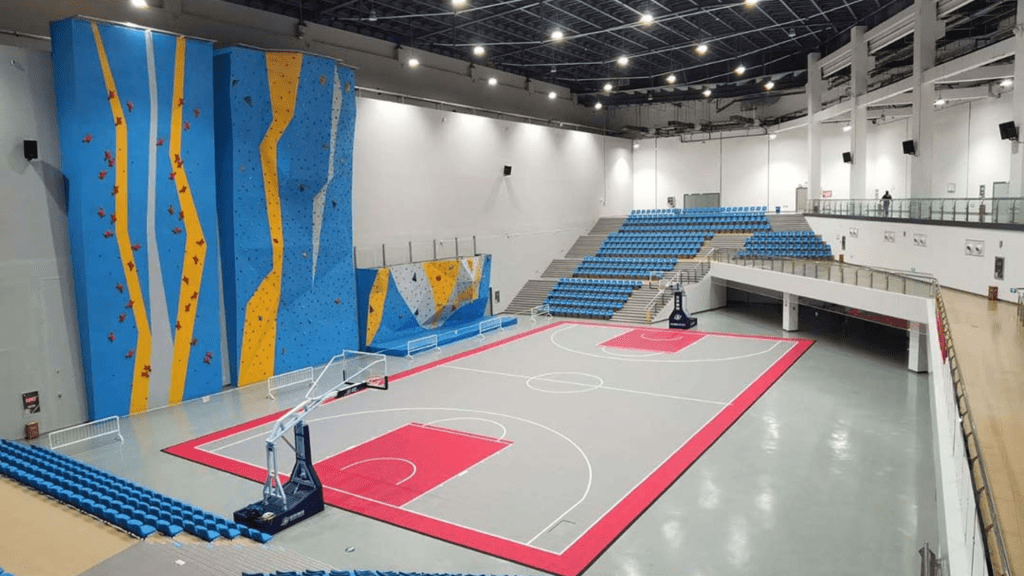Becoming a basketball coach is a rewarding and challenging career path for those who are passionate about the game and enjoy working with athletes.
Whether you are a former player looking to transition into coaching or someone who has always had a love for the sport, this article to guide you through the steps of becoming a basketball coach.
From gaining experience and education to building connections in the industry, we will provide you with the essential information you need to embark on this fulfilling journey.
Keep reading to learn how to become a basketball coach.
How to Become a Basketball Coach?
Becoming a basketball coach requires a combination of essential skills, qualifications, and a deep understanding of the game. In this section, we’ll explore the traits and skills of a successful basketball coach, gaining knowledge and experience in the basketball industry, building relationships, and networking with other coaches.

Developing a coaching philosophy and style, learning from past coaches and mentors, continuing education, taking on leadership roles, seeking practical coaching experience, and constantly evaluating and improving coaching abilities.
The Traits and Skills of a Successful Basketball Coach
As a basketball coach, certain traits and skills are essential. These include strong leadership abilities, effective communication skills, strategic thinking, a deep understanding of the game, patience, adaptability, and the ability to inspire and motivate players.

Additionally, a successful coach must possess excellent decision-making skills, emotional intelligence, and the capacity to remain calm under pressure. These traits and skills form the foundation of a successful coaching career and are vital for guiding a team to success.
Educational Background and Certifications
A solid educational foundation is the first step toward becoming a proficient basketball coach. Many successful coaches begin by pursuing a bachelor’s degree in fields such as sports science, physical education, or sports coaching.
These programs provide a comprehensive understanding of coaching principles, sports performance, and the psychological aspects of athletic development. Certifications: Consider obtaining coaching certifications offered by recognized sports organizations.
These certifications validate your coaching abilities and can enhance your credibility as a coach. Examples include the USA Basketball Coach License, the National Federation of State High School Associations (NFHS) coaching certification, and the National Association of Basketball Coaches (NABC) certification.
1. Playing Experience
While education and certifications provide a strong foundation, practical experience is equally crucial for aspiring basketball coaches. Playing the game will help you understand the intricacies, strategies, and techniques involved. Join a local basketball team or participate in school or college basketball programs.
2. Coaching Clinics and Courses
Enroll in coaching clinics and courses to learn the fundamentals of coaching. These programs are designed to teach aspiring coaches about player development, game strategies, coaching techniques, and more. Look for programs offered by national sports organizations, community centers, or local coaching associations.
3. Knowledge of the Game
Develop a deep understanding of the game of basketball. Study the rules, different game systems, offensive and defensive strategies, and player positions. Watch professional games, analyze plays, and learn from successful coaches.

4. Communication and Leadership Skills
Effective communication and leadership skills are crucial for a coach. Coaches must be able to effectively communicate instructions, motivate players, and build a positive team culture. Develop your communication skills by practicing effective listening, providing constructive feedback, and fostering a supportive environment.
5. Player Development
Every player has unique strengths and weaknesses. A successful coach understands this and focuses on individual player development. Identify areas for improvement, provide constructive feedback and design practice sessions that target specific skills.
6. Organization and Planning
Being organized and able to plan effectively is essential for running efficient practices and managing game strategies. Develop skills in time management, scheduling, and creating practice plans to maximize productivity and player development.

7. Problem-Solving
Basketball is a fast-paced game, and situations can change rapidly. A coach needs to think quickly and make strategic decisions on the spot. Sharpen your problem-solving skills to adapt to different game situations and make effective in-game adjustments.
8. Emotional Intelligence
Understanding and managing emotions, both your own and your players’, is crucial for maintaining a positive and supportive team environment. Develop emotional intelligence to handle conflicts, motivate players, and create a cohesive team.
9. Adaptability
Basketball is an ever-evolving sport, and as a coach, you need to adapt to new trends, strategies, and player abilities. Be open-minded and willing to embrace change to stay ahead of the game.
10. Relationship Building
Building strong relationships with your players, assistant coaches, and other stakeholders is important for creating a positive and supportive team environment. Foster trust, respect, and open communication to enhance team cohesion and player motivation.
11. Continuous Learning
The best coaches never stop learning. Stay updated with the latest coaching techniques, attend coaching clinics, and learn from other successful coaches. Embrace a growth mindset and always seek opportunities for improvement.
12. Volunteer or Assistant Coaching Roles
Gain practical experience by volunteering as an assistant coach or working with youth basketball programs. This hands-on experience will provide you with valuable insights into coaching techniques, player development, and game management.
13. Network and Mentors
Build your network within the basketball community. Attend coaching conferences, join coaching associations, and connect with experienced coaches. Having mentors who can guide you along your coaching journey will be immensely beneficial.
14. Continued learning
Stay updated with the latest coaching techniques, strategies, and trends in the basketball world. Attend coaching clinics, read books, watch educational videos, and follow reputable basketball coaching blogs or websites.
15. Analytical and Strategic Thinking
Coaches need to analyze game situations, identify strengths and weaknesses, and make strategic decisions to maximize their team’s performance. Adapting game plans based on opponents’ strategies and addressing individual player needs are critical for success.
16. Patience and Empathy
Coaching requires patience and empathy towards players. Coaches must be able to understand and work with players of varying skill levels and personalities and provide constructive feedback and support.
17. Physical Fitness and Health Knowledge
Coaches should have a good level of physical fitness and an understanding of health and fitness principles. They must be able to demonstrate drills and exercises and ensure the overall physical well-being of their players.
Remember, becoming a successful basketball coach takes time, dedication, and a passion for the game. Continuously strive to improve your skills, gain experience, and learn from experienced coaches to enhance your coaching abilities.
By developing these essential skills, you will be better equipped to succeed as a coach in basketball and help.
VMKON Baketball Courts
CopoSports Basketball Courts emerge as a revolutionary and innovative choice for outdoor basketball enthusiasts, establishing a new benchmark in flooring solutions. Employing interlocking tiles, CopoSports has introduced a groundbreaking approach that has gained approval from FIBA as a level-1 flooring suitable for both 3×3 basketball court and outdoor basketball court configurations.

What distinguishes CopoSports is its exceptional resilience against the elements, being rainproof, rotproof, insectproof, and mildewproof. This all-weather durability is complemented by dimensional stability, ensuring a consistent playing surface regardless of environmental conditions. Notably, the court’s surface is customizable, allowing for the application of custom graphics and logos, transforming it into a unique and eye-catching sports arena.
The option to sand and treat the surface with a urethane finish further enhances its longevity and aesthetic appeal. With minimal upkeep requirements, CopoSports Basketball Courts make maintenance hassle-free, requiring only regular cleaning to keep them in pristine condition for countless games to come.
Conclusion
Becoming a successful basketball coach requires a combination of essential skills, qualifications, and a deep understanding of the game. This article explores the necessary steps to becoming a basketball coach, including gaining knowledge and experience in the basketball industry.
Building relationships with other coaches, developing a coaching philosophy and style, seeking guidance from mentors, continuing education, taking on leadership roles, gaining practical coaching experience, and constantly evaluating and improving coaching abilities. By following these steps, aspiring coaches can set themselves on the path to success in the world of basketball coaching.
FAQs
How Do You Become a Local Basketball Coach?
Start by gaining coaching certifications and experience through local leagues or youth programs. Network with other coaches and seek mentorship to enhance your skills. Lastly, connect with schools or community centers to offer your coaching services.
How Do You Become an NBA Coach?
Becoming an NBA coach requires a deep understanding of the game, strong leadership skills, and a passion for coaching. Start by gaining experience through coaching at lower levels, such as high school or college.
Network with other coaches and players to build connections within the basketball community. Pursue further education in sports management or coaching to enhance your knowledge and credentials. Lastly, be persistent and dedicated to your goal, as breaking into the NBA coaching world can be challenging but ultimately rewarding.
Do NBA Coaches Get Paid?
Yes, NBA coaches do get paid. They are among the highest-paid coaches in the world of sports. Coaching in the NBA can be a lucrative career for those who excel in their roles.
Read More








